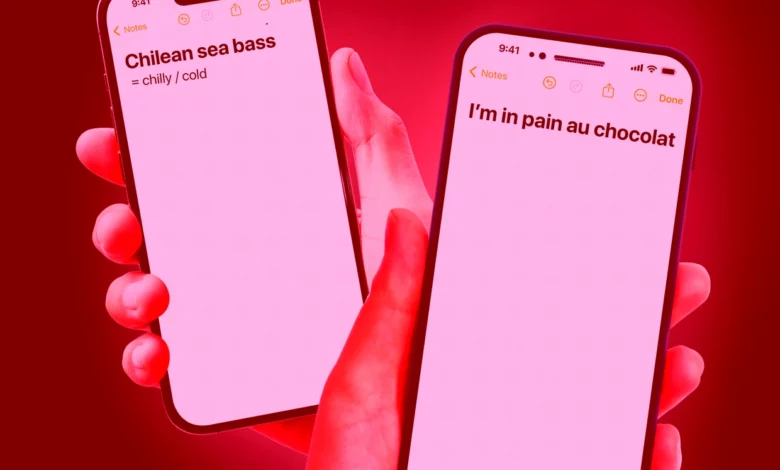‘Friend dictionaries’ on TikTok show how loved ones create their own languages
Experts and creators say shared language makes people feel closer to one another.

For one pair of sisters, a brisk day isn’t chilly — it’s “Chilean sea bass.” And for one couple, they don’t receive deliveries — they “got a parcel.”
These phrases may be unusual to the average person, but to some duos they are common sayings.
Best friends, siblings and couples alike are sharing their inside jokes and shared lingo on TikTok. Dubbed “friend dictionaries,” and sometimes couple or sister dictionaries, these words reveal the secret languages people have with those closest to them.
The trend features videos of duos testing each other on their slang. Each person has to guess the term the other writes down for them.
TikTok creator Chelsea Lefkowitz posted five videos with her sister Amanda Paige guessing the unique slang they share, racking up over 11 million views total.
Viewers commented which terms were their favorites, including “nosetta” for a nosy person or “projectile committed” for plans they are unable to cancel.
“I feel like it’s kind of a universal experience that most sisters or siblings or best friend duos can relate to,” Lefkowitz said. “It’s kind of instinctual, especially for me and my sister. We have a shared background. It’s easy for us to develop inside jokes and references and we kind of have that unique way of communicating.”
Nicole Holliday, assistant professor of linguistics at Pomona College, said the trend exemplifies how “any community of people that have regular interactions with each other will come up with shorthand or references to previous events.”
“It’s establishing your closeness or your role in the community,” Holliday said. “I’m in on the joke. You’re in on the joke.”
Inside jokes and slang can also evoke feelings of nostalgia.
“It’s reminding you of the previous experiences that you’ve had together, which also sort of then facilitates the closeness of the relationship,” Holliday said.
It’s establishing your closeness or your role in the community.
NICOLE HOLLIDAY, ASSISTANT PROFESSOR OF LINGUISTICS AT POMONA COLLEGE
People like the trend because it reminds them of how connected they are to their loved ones, according to Holliday.
Shared jokes and language require people to “know something about each other,” she said.
Reminders of connection and closeness are also likely appealing to audiences because of the ongoing loneliness epidemic and feelings of isolation following Covid-19 lockdowns.
“It makes them feel a sense of belonging with their family or friends,” Holliday said.
Jedson Tavernier and Jade Smith, who make couples content on TikTok, made two videos participating in the trend that received a total of over 19 million views. Viewers noted that they use funny voices and accents in addition to slang, which many related to doing with their own partners.
Tavernier said the videos are relatable and humanizing, which is refreshing on social media, where audiences can often forget that creators are people too.
“These types of videos that kind of break that wall and break that barrier down, where people are like, ‘Wow, they’re literally just like us,’ are really good for everybody,” he said.
Smith said she thinks people like the trend because it shows how being silly with your loved ones is a universal experience.
“Everyone has their own shared language and I think that makes you see everyone [as] really human,” she said. “I love that about it. I just think it’s so funny to see that everyone does what we do.”




